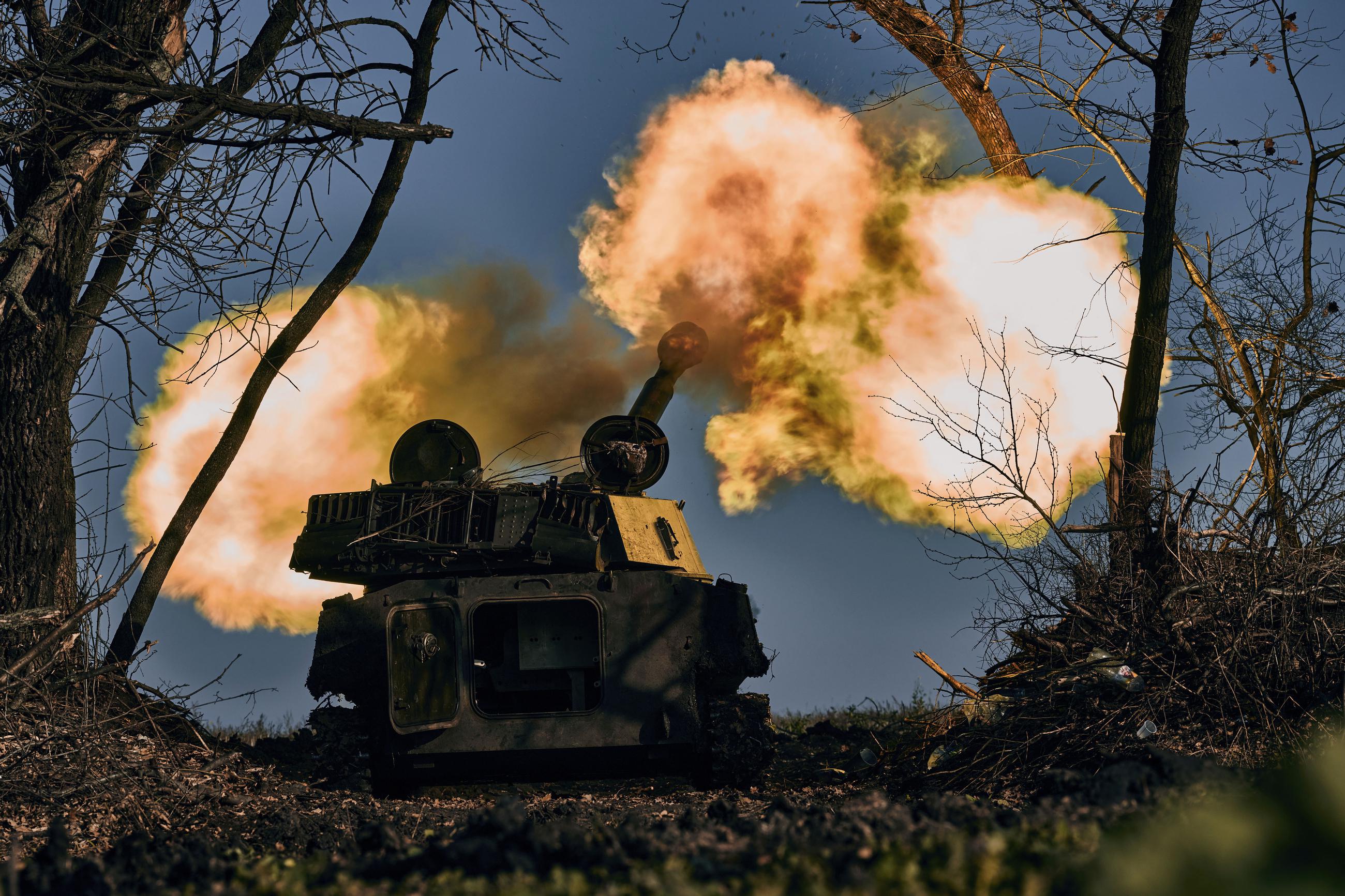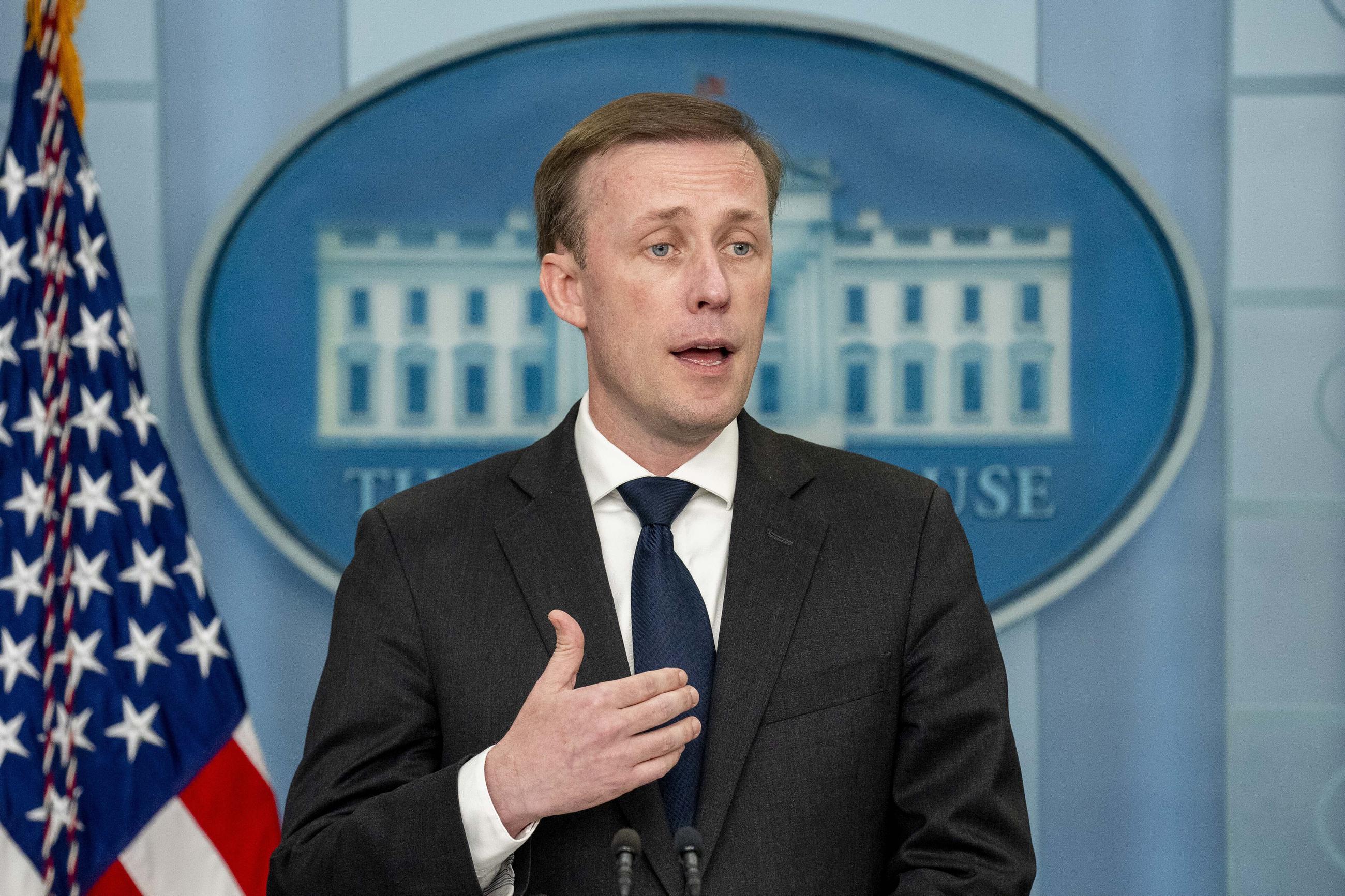Cristina Maza

A debate is unfolding in Washington over whether the U.S. should encourage Kyiv to crack open the door to negotiations with Russia.
In the days leading up to the midterm elections, National Security Adviser Jake Sullivan traveled to Kyiv.
It was the Biden administration official’s first visit to the country since Russia launched a brutal war against its neighbor almost nine months ago. Sullivan met with Ukrainian President Volodymyr Zelensky, his top aide, Andriy Yermak, and the country’s defense minister. He also announced a new $400 million security-assistance package, including refurbished tanks and unmanned aerial vehicles. The package appeared to signal Washington’s commitment to helping Ukraine win a protracted fight against its larger neighbor.
But several days later, Zelensky took to his Telegram channel to announce a series of conditions Russia would need to meet for peace negotiations between the two countries to begin. It was a sharp turn from his previous statements when he said Ukraine would not negotiate as long as Russian President Vladimir Putin remained in power.
The sequence of events raised eyebrows, especially among those in Washington and Kyiv who have criticized Sullivan’s role in shaping the Biden administration’s approach to Ukraine. Experts say Sullivan had long advocated against sending defense equipment like the NASAMS air-defense systems or surface-to-surface missiles ATACMS, even when others in the administration pushed for them, because he believed they could lead to an escalation. Some observers now say he’s encouraging Ukraine to soften its position on negotiations.
“We’ve not seen strong support from Jake Sullivan. On the contrary, for many years, we’ve heard arguments about not giving weapons because they are escalatory,” said Hanna Hopko, a Ukrainian civil-society activist and former chair of the Ukrainian parliament’s foreign-affairs committee, referring to Sullivan’s role in the Obama administration and the current administration. “These delays have cost us thousands of killed soldiers. We need more weapons, not talks about peace.”
Hopko noted that most Ukrainians believe they can win the war without compromises or negotiations with Russia and that Zelensky is very sensitive to public opinion.
The Biden administration’s critics on Capitol Hill have long accused Sullivan of using backchannels to pressure Zelensky to the negotiating table, a charge that administration officials vehemently denied. One former U.S. diplomat, speaking on background in order to speak freely, blamed Sullivan for the administration’s reluctance to supply Ukraine with weapons that could help Kyiv win the war quickly, arguing that the national-security adviser is overly concerned with escalation.
In the days following Sullivan’s trip, multiple media reports claimed that Biden administration officials, and Sullivan in particular, had pushed Zelensky to show a willingness to negotiate in case it became harder to secure funding from Congress and international partners in the coming months. According to this line of thinking, a Republican-led House, together with progressive Democrats, might be more reluctant to continue to fund the war if Zelensky appeared unwilling to dialogue.
The White House did not respond to requests for comment.

White House National Security Adviser Jake Sullivan speaks at a press briefing at the White House in Washington, Thursday, Nov. 10, 2022. (AP Photo/Andrew Harnik) ASSOCIATED PRESS
Samuel Charap, a political scientist at the Rand Corporation who has written extensively about Russia and Ukraine, said the administration is more concerned about Ukraine losing support from countries like Italy and Germany than it is about Congress.
“There had been a hardening in rhetoric from Kyiv. And it’s not just rhetoric. There was a presidential decree banning the president from talking to Putin. They had changed their position from where it was in the spring and early summer about a negotiated end,” Charap said.
“As a matter of maintaining the coalition, the Ukrainians demonstrating, at least on the level of rhetoric, openness to negotiations, is super important,” Charap added. “Both within the U.S. and among the countries supporting Ukraine, if they are seen as the problem in achieving a negotiated solution, it would be detrimental to the overall effort. First and foremost, it’s about that and not about moving toward negotiations. Russia needs to be seen as the problem for talks.”
Charap said that critics of Sullivan are underestimating the importance of what the U.S. has done for Ukraine and have unrealistic expectations about the extent to which U.S. decision-makers should worry about an escalation with a nuclear power. If Russia experiences a major military defeat, its leadership could grow desperate, he argued.
Meanwhile, support for continued assistance to Ukraine is expected to remain high in the next Congress. Minority Leader Kevin McCarthy, expected to be speaker of a Republican-led House, sparked concerns in the weeks leading up to the elections when he told reporters that a Republican Congress wouldn’t write blank checks to Ukraine.
But the isolationist wing of the Republican Party did not win an overwhelming victory in Tuesday’s elections. Ukraine policy in a Republican House will be dominated by lawmakers like Rep. Michael McCaul of Texas and Rep. Mike Turner of Ohio, both of whom have expressed longstanding support for Kyiv’s sovereignty. Several Democratic lawmakers who are strong on national security and supportive of U.S. aid to Ukraine also kept their seats in the House, leading many in Kyiv to breathe a sigh of relief.
“These people who were telling Americans they should not be involved in the world—should not play an active role or be a leader—I think they will not be a strong part of the American Congress, and I think that is very important,” said Oleksiy Goncharenko, a Ukrainian member of parliament.
“The chairs of the Ukrainian Caucus, like Reps. Marcy Kaptur and Brian Fitzpatrick, and others like Reps. Mike Turner, Gregory Meeks, Steven Cohen, and Joe Wilson are all reelected,” Goncharenko added. “That is a very good sign that the United States will continue to play an active role in the world.”
The election in the U.S. was immediately followed by military movements in Ukraine, as Russian troops announced a withdrawal from the right bank of the Dnipro River in the occupied city of Kherson. During a press conference on Wednesday, President Biden noted it was interesting that Putin announced the withdrawal immediately following the elections when they had been planning to retreat from the area for weeks.
Goncharenko said Putin was likely waiting to see if the midterm elections would demonstrate that U.S. support for Ukraine was waning before he abandoned Kherson.
Some Ukrainians feared the withdrawal might be a trap. But Andriy Zagorodnyuk, Ukraine’s former minister of defense, said that Russian General Sergey Surovikin decided to pull troops after the Ukrainian armed forces launched successful attacks against bridges and supply lines so he could avoid blame for Russia’s military failure.
“Professional success in the Russian military depends heavily on the ability to avoid being blamed for failures,” Zagorodnyuk said. “By issuing painful orders to retreat soon after taking command of the Russian invasion, Surovikin has been able to deflect responsibility. If he had waited until New Year 2023, this would no longer have been possible.”
The Russian retreat from Kherson is a significant military setback for Putin. Ukraine’s successful counteroffensives in the south and east of the country have only hardened Kyiv’s position against imminent negotiations since battlefield results will strengthen the Ukrainian government’s hand in any future settlement.
Speaking to reporters on Thursday, Sullivan noted that it is up to the Ukrainians to decide when they are ready to talk.
“It is ultimately up to Ukraine to make determinations about its diplomatic course,” Sullivan said. “It is our job to put them in the best position on the battlefield so that when and if there is an opportunity for diplomacy, they are in the best position at the bargaining table.”
No comments:
Post a Comment